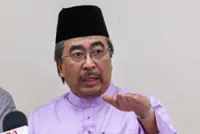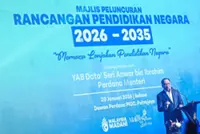PETALING JAYA: Malaysia stands to benefit economically and resolve workforce gaps by enabling refugees and asylum seekers to work under a formal framework, says the Malaysian Employers Federation (MEF).
Its president Datuk Dr Syed Hussain Syed Husman said that currently, 185,000 refugees and asylum seekers reside in Malaysia, the majority of whom are of working age and physically able to contribute to the economy.
“At present, refugees and asylum seekers face legal and practical barriers to formal employment, despite having the skills, willingness and potential to contribute positively to the Malaysian economy.
“MEF believes that, if managed strategically and humanely, the integration of refugees and asylum seekers into the formal labour market will positively help address several pressing national challenges, particularly in sectors facing acute labour shortages such as agriculture, construction, manufacturing and care services,” he said in a statement yesterday.
Syed Hussain said one way to revitalise the economy is by granting work access to those registered with the United Nations High Commissioner for Refugees (UNHCR) in Malaysia.
“This will not only provide them with the opportunity to recover from the trauma of war, conflict and persecution, but also allow them to contribute to Malaysia’s economic growth, with clear benefits to businesses and consumers,” he added.
He said MEF believes formalising refugee employment will bring tangible benefits, including supporting Malaysia’s Gross Domestic Product (GDP) growth through labour output, consumption, taxation and entrepreneurship.
Syed Hussain said it could also reduce exploitation and illegal hiring practices by promoting labour compliance, as well as saving time and costs for employers by tapping into a workforce already present in the country.
He pointed to a joint study by the International Labour Organisation (ILO) and UNHCR where they found that enabling refugees to work could increase a country’s GDP by up to 0.5% over time.
“Even if 30% to 40% of the refugee and asylum seeker population is granted access to the formal job market, this could add 55,000 to 75,000 employees to Malaysia’s labour force, boosting productivity and supporting national economic growth,” he said.
Syed Hussain said this approach would not displace local workers, especially in 3D jobs (dirty, dangerous and difficult) that are typically shunned by Malaysians.
“It would reduce dependency on foreign workers and cut enforcement costs associated with illegal labour,” he said.
Syed Hussain added that the move would also strengthen Malaysia’s international standing on human rights and align with global standards such as the UN Guiding Principles on Business and Human Rights and environmental, social and governance (ESG) expectations.
“MEF is calling on the government to collaborate with employers, trade unions, NGOs and international bodies to develop a clear, transparent policy framework that defines legal work status, outlines obligations and rights, integrates skills recognition and includes proper vetting and monitoring mechanisms.
“MEF believes the inclusion of refugees and asylum seekers into Malaysia’s formal workforce is a win-win strategy; one that strengthens economic resilience, meets business needs and upholds Malaysia’s humanitarian commitments,” he said.





